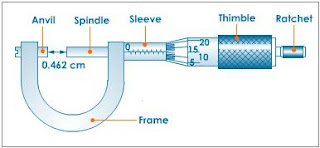Units are very important in our lives. Without them, it would be so hard to communicate. Imagine if there were no units and you were supposed to run a marathon. How puzzled the participants would be when they see 15 as the total distance. Questions like is it 15mm, 15cm, 15m or 15km would be circling around in the participants' heads. See the importance of units now? Units also help scientists to record down the amount of something for references. For example we use watts and volts for electricity, and millilitres and litres for water. Scientists cannot put down watts for water and litres for electricity.
There is also something called SI which stands for System International. There are SI base units and SI derived units. The base units are what SI was founded on. These seven quantities are assumed to be mutually independent. The table below shows us the 7 units.
So I have learnt the importance of units and also how to use some of the measuring tools that are new to me. I think that the new skills I have learnt in this chapter will surely help me in the future.




